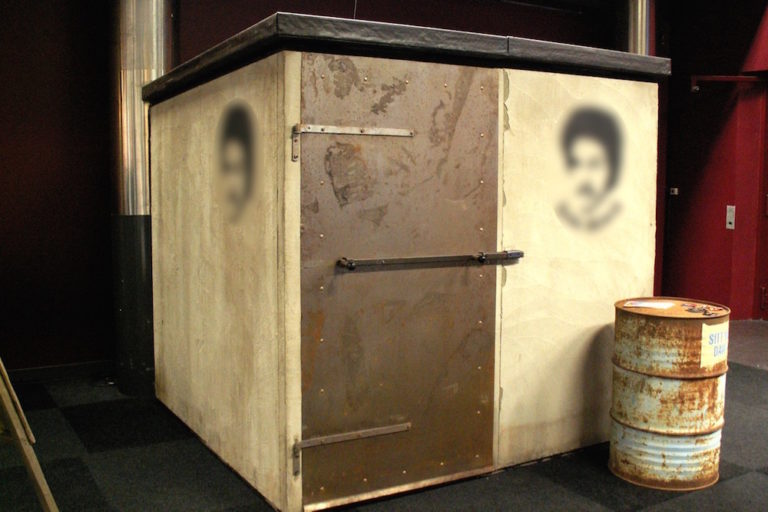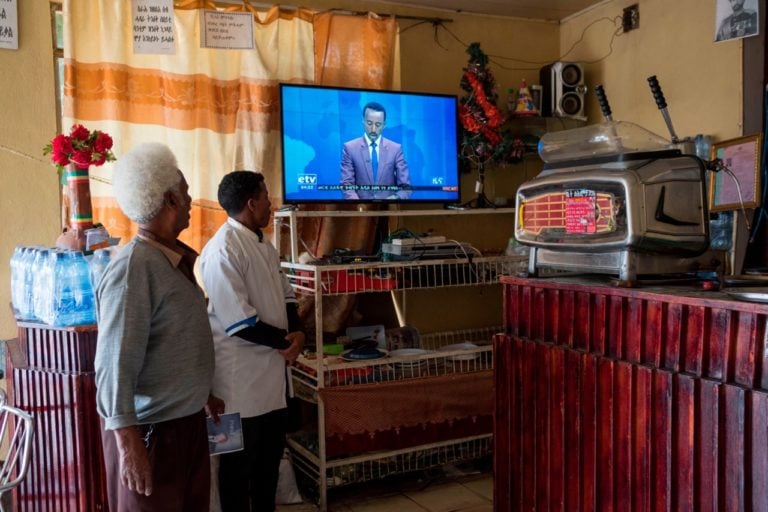Eritrea's prisoners of conscience are victims of indifference, tacit consent or overly timid efforts on the part of the country's international partners, says RSF.
(RSF/IFEX) – Eritrea now has at least 30 journalists and two media workers behind bars, which means that, exactly eight years after the round-ups of 18 September 2001 that put an end to free expression, it has achieved parity with China and Iran in terms of the number of journalists detained.
“Eritrea’s prisoners of conscience are not just the victims of their jailers’ cruelty,” Reporters Without Borders said. “They are also, and even more so, the victims of indifference, tacit consent or overly timid efforts on the part of the country’s international ‘partners’. The Eritrean government has become a disgrace for Africa.”
The press freedom organisation added: “Eight years after President Issaias Afeworki took his country on a tragic new course, it is time for him to change direction again and agree to release the imprisoned journalists or try them according to international norms. We count on the Swedish government, the current holder of the European Union presidency, to obtain concessions from Issaias, especially as one of the jailed journalists holds dual Swedish and Eritrean citizenship.”
The three most important waves of arrests of the past eight years were in September 2001, November 2006 and February 2009. Thirty journalists and two media workers have currently been detained without trial.
Many are being held in metal containers or underground cells in Adi Abeito military prison (northwest of Asmara, on the road to Keren), in Eiraeiro prison (near the locality of Gahtelay, north of the road from Asmara to the port city of Massawa), in the Dahlak archipelago or one of the many other detention centres scattered around the country.
Reporters Without Borders has confirmed that four journalists arrested in September 2001 did not survive the appalling prison conditions.
The journalist with Swedish and Eritrean dual nationality is Dawit Isaac, the founder of the now banned weekly “Setit”, who was arrested on 23 September 2001. He was taken to the air force hospital in Asmara for treatment earlier this year but he is now in Embatkala prison in Ghinda, 35 km northeast of the capital on the Massawa road.
The Eritrean authorities are keeping the state of his health a secret despite international campaigns for his release. In response to a question about Dawit during an interview with Swedish journalist Donald Boström at the end of May, President Issaias said that he did not care where Dawit was held, that he would never be tried and that the government would never negotiate his release with Sweden. See the interview with Issaias: http://tv4play.se/aktualitet/nyhetsmorgon?videoId=1.1014115&renderingdepartment=2.34562
In a 7 January 2009 resolution, the European Parliament expressed deep concern about Dawit’s continuing imprisonment and demanded his immediate release. But all the European Union attempts to obtain news about him have been ignored by the Eritrean authorities.
Reporters Without Borders has meanwhile learned that, during the past three weeks, dozens of civil servants working for the ministries of information, defence, foreign affairs and national security have been forced by the authorities to surrender their email passwords.
See the complete list of imprisoned journalists, updated this month: http://www.rsf.org/World-s-biggest-prison-for.html
Read the account of Tedros Abraham, an Eritrean journalist exiled in Norway: http://www.rsf.org/Refugee-at-last-Eritrean.html
Learn more about the press freedom situation in Eritrea: http://www.rsf.org/en-rapport15-Eritrea.html


